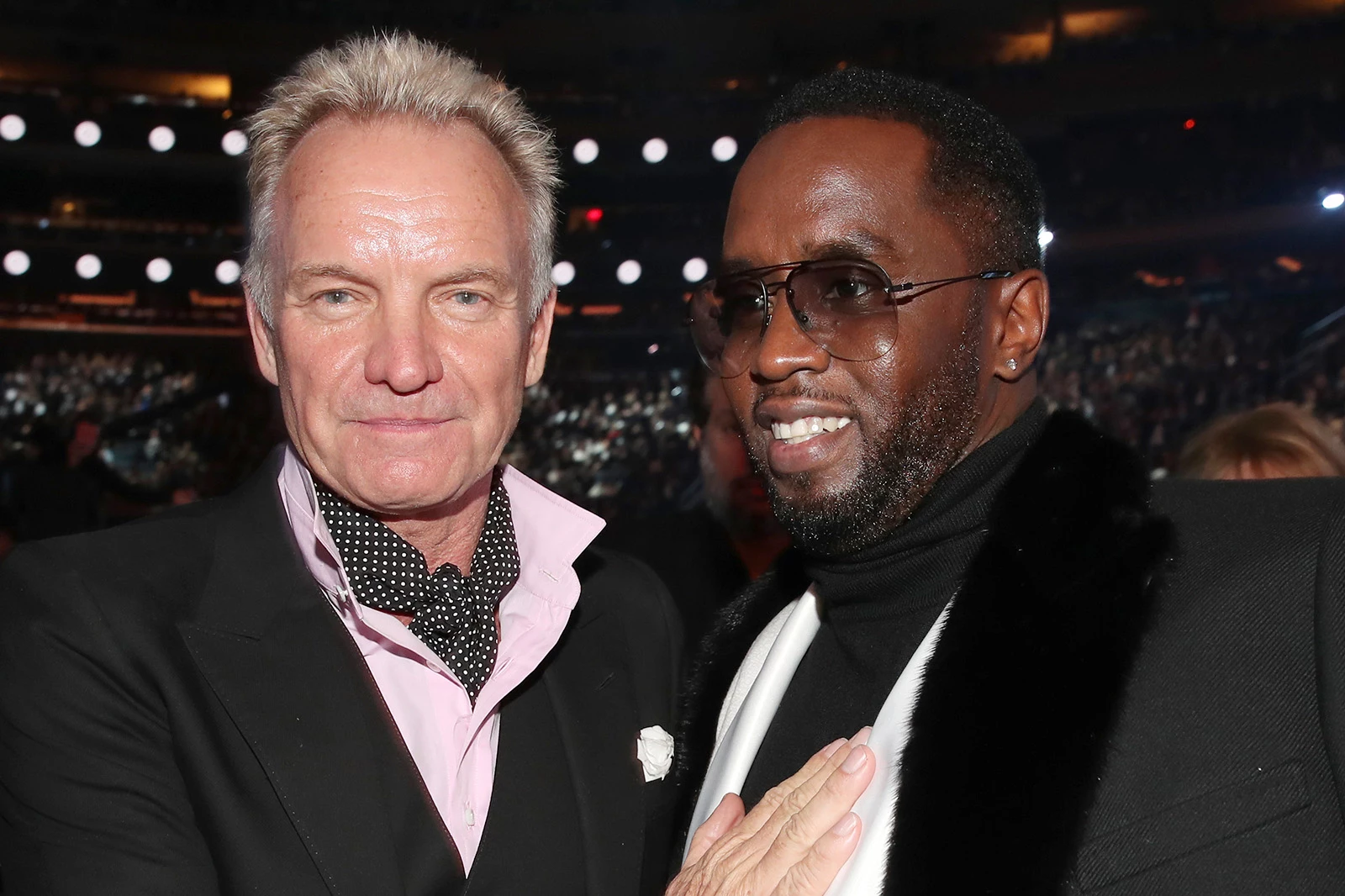The world of music is as much about art as it is about the complexities of financial agreements and royalties. One of the most intriguing stories that has recently resurfaced is about P Diddy, the legendary rapper and music producer, paying royalties to Sting, the iconic lead singer of The Police. This arrangement has captured the interest of both music enthusiasts and industry insiders alike. The story is not only a fascinating glimpse into the music industry's business side but also a testament to the enduring power of music to generate revenue across decades. In this article, we delve deep into this unique financial relationship and explore its broader implications.
The Origins of the P Diddy and Sting Connection
To understand why P Diddy is paying royalties to Sting, we must travel back to the late 1990s. In 1997, P Diddy released "I'll Be Missing You," a tribute to his friend and fellow rapper, The Notorious B.I.G., who was tragically murdered. The song samples The Police's 1983 hit "Every Breath You Take," a track that was penned by Sting. The original song's haunting melody and lyrics provided the perfect backdrop for Diddy's mourning, resonating with millions worldwide. However, using such a significant part of another artist's work meant that a financial agreement needed to be reached, thus beginning the royalties journey between Diddy and Sting.
The Financial Agreement: Royalties Explained
Royalties are a crucial part of the music industry, ensuring that creators are compensated for their work. When P Diddy decided to use "Every Breath You Take" as the foundation for "I'll Be Missing You," it was necessary to secure the rights to the song, which were owned by Sting. The financial agreement they reached involved Diddy paying Sting a significant portion of the royalties generated by the new track. This arrangement highlights the importance of respecting intellectual property and the financial implications of using another artist's work. It also underscores the need for clear agreements in the industry to avoid potential legal disputes.
The Impact of "I'll Be Missing You" on Music and Culture
"I'll Be Missing You" became an instant hit, topping charts worldwide and becoming one of the best-selling singles of 1997. Its success not only solidified P Diddy's status as a major player in the music industry but also brought renewed attention to The Police's original track. The song's emotional depth and connection to The Notorious B.I.G.'s untimely death resonated with listeners, making it a timeless tribute. The royalties paid to Sting from this success underscore the symbiotic relationship between artists and highlight how collaborations, whether direct or through sampling, can lead to financial and artistic rewards for all parties involved.
Sting's Reaction and Relationship with P Diddy
Despite the financial implications, Sting has spoken positively about the arrangement. In interviews, he has expressed admiration for Diddy's work and the way he transformed "Every Breath You Take" into a heartfelt tribute. Sting's openness to this agreement reflects a broader understanding within the music community about the importance of collaboration and mutual respect. Their relationship serves as an example of how artists from different genres and backgrounds can come together to create something impactful, benefiting not only themselves but also their audiences.
The Broader Implications of Music Sampling
Sampling is a common practice in the music industry, allowing artists to build upon existing works to create new ones. However, it also raises questions about originality, ownership, and compensation. The arrangement between P Diddy and Sting is a prime example of how these issues can be navigated successfully. It highlights the need for artists to acknowledge and compensate the original creators adequately, fostering a culture of respect and collaboration. This approach can prevent legal battles and promote a healthier creative environment where artists feel valued and protected.
- Amanda Bearse
- Alycia Debnam Carey Relationships
- Wildenstein
- Gabriela Sabatini Wife
- Was Liam Payne Bipolar
Legal Considerations in Music Sampling
The story of P Diddy and Sting also brings to light the legal intricacies involved in music sampling. Securing the rights to a song is a complex process that requires negotiation and legal documentation. Artists must be aware of the legal frameworks governing intellectual property to avoid potential infringement issues. This understanding is crucial for both established and emerging artists who wish to incorporate samples into their work. The successful agreement between Diddy and Sting serves as an educational case study for those navigating the legal landscape of music sampling.
Royalties: A Lifelong Revenue Stream
For artists like Sting, royalties provide a lifelong source of income, often surpassing the initial earnings from the original release. This financial model allows artists to continue benefiting from their work long after its initial popularity has waned. The ongoing royalties from "I'll Be Missing You" exemplify how a single creative work can generate revenue across decades, offering financial stability and continued relevance in the music industry. It also highlights the potential for older works to find new life and audiences through modern reinterpretations.
The Evolution of Music Royalties in the Digital Age
The music industry has undergone significant changes with the advent of digital platforms and streaming services. These developments have altered the way royalties are calculated and distributed. For artists like P Diddy and Sting, adapting to these changes is crucial to maintaining their revenue streams. The digital age offers both challenges and opportunities, with new ways to reach audiences and monetize music. Understanding these dynamics is essential for artists looking to thrive in today's music landscape, ensuring they receive fair compensation for their work in an increasingly digital world.
Conclusion: A Lesson in Collaboration and Respect
The story of P Diddy paying royalties to Sting is not just about financial transactions; it's a lesson in collaboration, respect, and the enduring power of music. It illustrates how artists can work together, even indirectly, to create something meaningful and profitable. This arrangement has paved the way for future collaborations, setting a standard for how artists should approach sampling and intellectual property. As the music industry continues to evolve, the principles demonstrated by Diddy and Sting will remain relevant, guiding artists in their creative and financial endeavors.
- Av4 Us
- Kawaiisofey Onlyfans Leak
- Colin Jost And Michael Che Friendship
- Omri Katz
- Where Is Elisabeth Fritzl Now
:max_bytes(150000):strip_icc():focal(749x329:751x331)/P-Diddy-Sting-01-040523-1effc4491149433e8307c0a55fef34b7.jpg)

